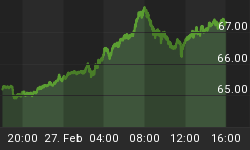The gravity of the global debt crisis can be seen in the flip-flop game plans from policymakers. The reaction to the 2008 crisis was to try to "spend our way out of this". That didn't work, but it did succeed in pushing debt levels even higher. The second approach, championed by Germany's Angela Merkel, is based on the "cut spending and restore confidence" theory. That isn't working either.
Now we have come full circle with Tim Geithner and the IMF again calling for "pro-growth" policies. Pro-growth is a politically correct way of saying "spend money we don't have." According to the Wall Street Journal (WSJ), the Keynesian approach of the government leading the private sector to the promise land of growth, is now being embraced by the most broke nation of them all - Greece:
Mr. Tsipras, the head of Greece's left party and an engineer by training, recommends a stimulus package to boost the Greek economy and has called for tearing up the country's existing austerity-for-loans program. He has suggested scrapping plans to lay off 150,000 public-sector workers by 2015, and repealing recent measures to push down private-sector wages. He favors nationalizing the banking system so as to better direct lending policies, and speaks favorably of Franklin Delano Roosevelt's Depression-era New Deal program and President Barack Obama's stimulus package--something Mr. Tsipras said is lacking in Europe.
As we outlined in October 2011, the debt levels of many nations have moved into unsustainable territory. Thus, it is not surprising that policies from both ends of the spectrum have failed. Mr. Tsipras is also engaging in a full-tilt game of political chicken. From the WSJ:
The head of Greece's radical left party--throwing down a gauntlet that could increase tensions between Greece and its frustrated European creditors--said he sees little chance Europe will cut off funding to the country but that if it does, Athens will stop paying its debts.
The video below looks at the current state of the markets (SPY) as we head into a G-8 weekend. Risk assets are oversold, but remain in prove-it-to-me mode. We will continue to err on the defensive side until the market or policymakers show us something of substance.















